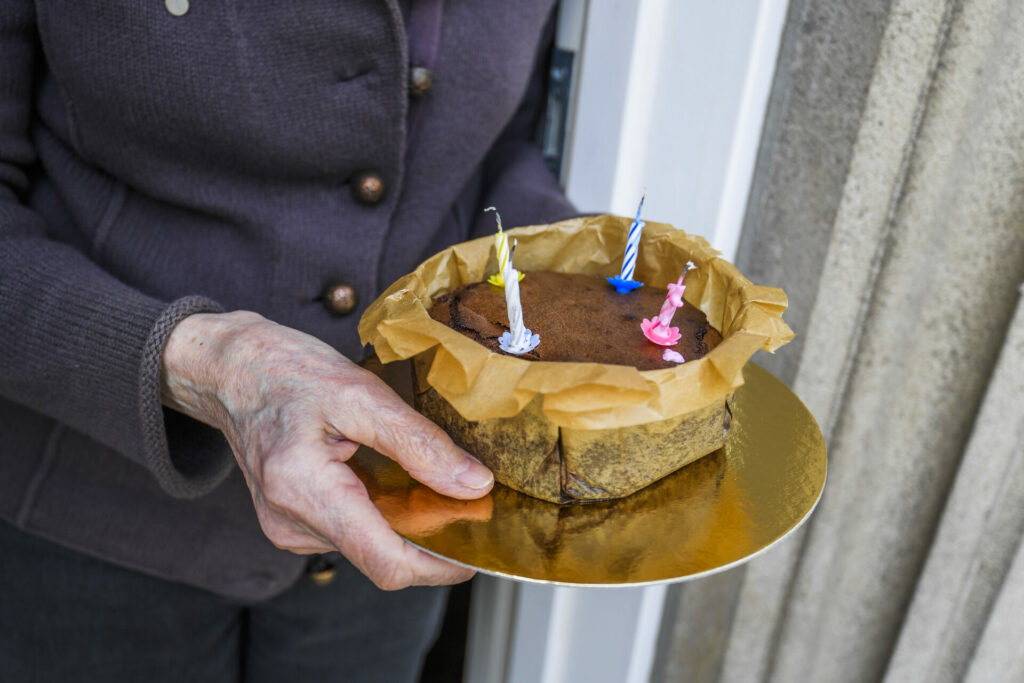From 2030 onwards, the number of elderly residents in Brussels is expected to rise sharply, and the poverty risk of this age group is also increasing, highlighting the urgent need to adapt care capabilities to meet future demand.
In recent years, the number of people over the age of 65 living in the Brussels-Capital Region has increased. Three years ago, 160,000 elderly people lived in the Brussels Region, equating to around 13% of the entire population at the time. According to demographic forecasts, this increase will continue.
This was one of the key findings of a recent report by the Brussels Health and Wellbeing Observatory (CCC), published on Wednesday. It warned that, overall, the elderly population in the region is worse off than those living in Flanders and Wallonia.
"Compared to the Belgian population, more Brussels elderly live in a situation of subsistence insecurity," the report stated. "Among Brussels residents aged 65 or over, one in four (24.5%) live with the risk of an income below the at-risk-of-poverty threshold, while this risk is 15.7% on a national level."
Three in ten people aged over 65 indicated they were not in good health, a figure that doubled among the least educated. Meanwhile, almost twice as many elderly people in Brussels report having to postpone health care.
Growing divide
Worryingly, the study pointed out that this "greater vulnerability" in Brussels appears to be deepening over time.
"In 2020, one in eight (12.2%) of Brussels over-65s were entitled to the Income Guarantee for the Elderly (IGO), compared with 8.7% in 2010. This is the case for only one in 20 (5%) of elderly people across the entire country, a proportion that has remained stable over time." This group of people is more likely to have to rely on care services.
The study added that there will be a sharp increase in those aged over 85, referred to as a vulnerable population with a higher risk of needing care, from the end of this decade. This is expected to result in the demand for care structures for the elderly population.
The study also noted that the ethnocultural diversity among Brussels elderly will increase in the coming years. The proportion of over-65s who do not have Belgian nationality is growing, while some 65% of the so-called "elderly of tomorrow" (those aged 50-64) have a different nationality.
"These demographic and sociocultural evolutions mean that the welfare and health offerings in Brussels may need to be rethought (home help and care, types of care and housing for the elderly and their financial accessibility," the CCC stated.
It referred to a previous study which questioned whether the intercultural dimension should not be given more attention, e.g. through the development of specific residential care centres or other housing structures paying attention to the "specific characteristics and different cultural experiences of this future elderly population."
Need for alternative structures
While the study recognised that there is an adequate supply of residential care centres (including for those with severe care needs), it stressed that a challenge in the coming years will be to develop care for people with low dependency on care that are also financially accessible, especially assistance homes.
Overall, it noted that the supply of alternative structures (e.g. assisted living homes, short-stay centres, day care centres, alternative housing for senior citizens) is "relatively undeveloped."
Related News
- Record number of nursing homes on ‘blacklist’
- Mental health of the elderly needs re-evaluating, says psychiatrist
Brussels Minister Alain Maron, who is responsible for elderly policy, noted that his recent reform of elderly care will meet the demographic and sociocultural changes revealed by the study.
"Our priority is that everyone can grow old well in Brussels. This implies that everyone should be able to choose how the framing is done, to promote the autonomy of the elderly, in a dignified way," a statement from his cabinet read.

